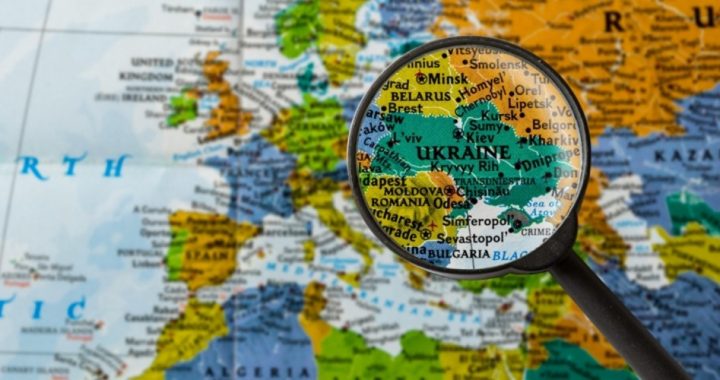
Congressman Steve Russell, an Oklahoma Republican, was quoted in Sunday’s Oklahoman newspaper explaining why he believed the United States should be giving military aid to Ukraine in its disputes with Russian-backed separatists. He said that such aid was crucial in averting a world war between the United States and Russia.
“People might say, ‘Why should we even be getting involved in any of that?’ NATO. You’ve got all these in Eastern Europe — Poland, Romania, Latvia, Estonia — all these countries and if they were attacked by Russia, we would be at war because there’s a NATO alliance,” Russell said.
Russell added, “So, that’s why we care. We want to make sure that these countries are defensible and that Russia doesn’t try to take advantage of them because if they were to do so, we literally, over some small country, could find ourselves bound by the NATO alliance Article 5 and we would be in a big war.” (Emphasis added.)
While one might disagree with Russell’s solution to avoiding a war with Russia — giving aid to Ukraine — he is quite correct that the North Atlantic Treaty Organization’s Article 5 does commit the United States to war should even one of its members be attacked, even if little to no vital American national interest is even involved. Article 5 is quite clear in stating that “an armed attack against one or more of them [NATO members] in Europe or North America shall be considered an attack against them all.”
Of course, NATO was created in 1949 for the stated purpose of joint defense of western Europe, the United States, and Canada from an attack by the Soviet Union. The Soviet Union — the enemy it was supposedly created to protect against — imploded in 1991, yet the NATO Cold War alliance still exists. Like a charity that has defeated the disease it was created to eradicate, the alliance simply rebranded itself and morphed into a permanent military organization, with a reach far beyond Europe, specializing in telling other countries how they should handle their internal conflicts.
Like the government agency that always finds new justifications for its existence, NATO has intervened in civil wars in Bosnia and Somalia, which hardly had anything to do with stopping the Soviet Army from marching into Paris, London, and Rome.
Perhaps a closer look at the alliance’s origins is merited. When formed, NATO cited Article 51 of the UN Charter as its authorization for existence. Dean Acheson, who was secretary of state at the time, trumpeted NATO as “designed to fit precisely into the framework of the United Nations…. The United States government and the governments with which we are associated in the treaty are convinced that it is [an] essential measure for strengthening the United Nations.”
In other words, the globalists then and now view NATO not so much as some sort of mutual defense against Soviet aggression, but as a way to increase the power of the UN, at the expense of our own national sovereignty.
As Pat Buchanan wrote in 1998, “With NATO expansion, we give up forever our freedom to decide when and whether to go to war. We give up forever the opportunity to bring the boys home, and we lock ourselves forever into virtually every future European war. NATO expansion entails a contemptuous dismissal of the wisdom of America’s greatest men, who warned us again and again against permanent alliances.”
Yet, Senator Jim Inhofe, another Oklahoma Republican, was quoted as saying in a letter to President Trump, “Russia’s continued aggression and repeated refusal to respect Ukraine’s territorial integrity warrants a strong response from those of us who respect the rules-based international order.” (Emphasis added.)
Inhofe later acknowledged that the term “defensive” military aid is not quite accurate. “It’s not a very sincere description of weapons because anything you send over you can use as a defensive weapon, but in order to get some of the people — in this case, the Democrats on the Defense committee — to be supportive, we wanted to call them defensive weapons.”
Such semantics are typical of the history of the globalist rhetoric we have heard, especially since the end of the Second World War. Ukraine, for example, is not even a member of NATO (though NATO membership for Ukraine is being considered), yet America is somehow considered obligated to risk a military confrontation with Russia over a nation on its border.
Buchanan’s words in 1998 seem applicable today. “That One Worlders are doing this is easy to understand; that self-professed conservatives are collaborating seems inexplicable — further proof that there is no true conservative party in Washington today.”
Rather than giving aid to Ukraine to avoid war with Russia over countries in eastern Europe, as Congressman Russell suggests, a better solution is for the United States to end its relationship with NATO, so we are no longer obligated to go to war over some dispute between Russia and countries in eastern Europe.
Photo: Thinkstock



